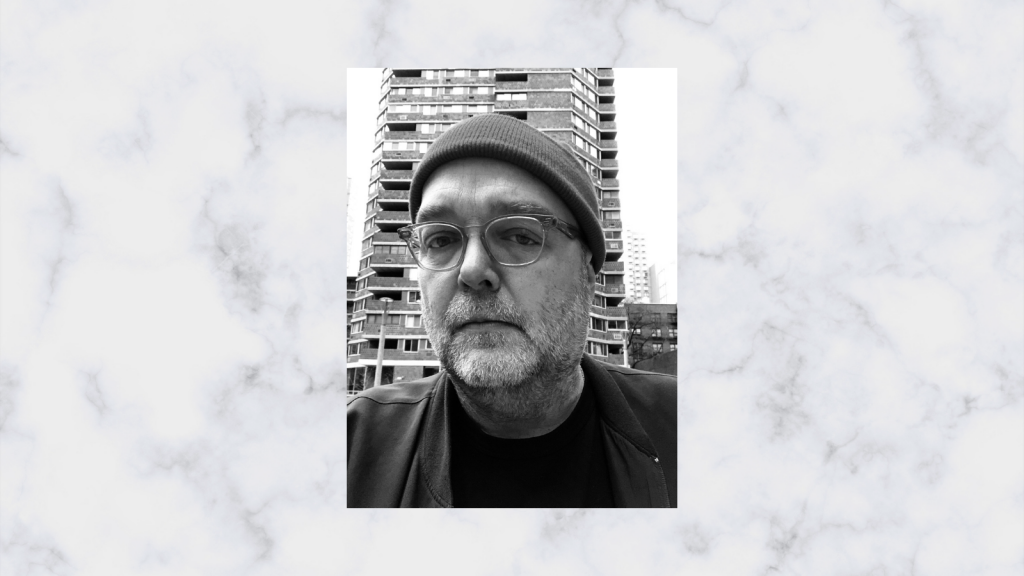Mark Nowak, MQR’s Guest Editor for the upcoming Fall 2021 issue entitled “Why We Write” (open for submissions now), sat down to answer some questions about his vision for the issue, the challenges and possibilities of working on an issue influenced by Orwell today, and his work with the Worker Writers School.
MQR: What was your inspiration when you began conceptualizing the issue? The idea behind the issue is obviously influenced by George Orwell’s “Why I Write.” Why does that piece have such a resounding legacy?
MN: The year 2021 will be the 75th anniversary of the original publication of Orwell’s “Why I Write.” Orwell’s “ars poetica,” if you will, attempts to dig deeper into understanding our motivations for writing. If we want our writing to have agency, if we want it to be part of the struggle to make a new and better world, I think it’s important to take a step back and examine our motivations as writers. How does the capitalist system influence the choices we make as writers? How might an intensified focus on social reproduction, for example – I’m thinking the writings of Tithi Bhattacharya and others here – and intersectionality – I’m thinking of Barbara Smith – shift how and for whom we write? Barbara’s legacy, in particular, from the Combahee River Collective to Kitchen Table: Women of Color Press to her role in electoral politics in Albany, New York, is a keen model for my own thinking on why I write.
MQR: What kinds of submissions to the issue are you looking forward to seeing? What voices do you think are crucial to this issue?
MN: Orwell organizes the inspirations for writing into four categories: egotistical, aesthetic, historic, and political. Given our current moment, those two latter categories seem extra important for me in thinking about this issue of the journal. How do submissions address where we are now and where we have been since March, deep into the Covid-19 pandemic, so many working people out of work, the murder of George Floyd and Breonna Taylor and others (and the Black Lives Matter protests that erupted against this continued state/police violence), on the heels of a historic election, etc. And what new points of view, new perspectives on these and other issues, might we be able to provide a space for in the pages of MQR.
MQR: How does your work with the Worker Writers School influence your vision for “Why We Write?” Why are the voices of worker writers such an important part of understanding “Why We Write”?
MN: The members of the WWS, which is now celebrating its tenth year in collaboration with PEN America, are the so-called “frontline” or “essential” workers of the current global pandemic: domestic workers, NYC subway workers, street vendors, taxi drivers, retail workers, etc. For the past nine months, our members have been studying radical haiku traditions in the United States: Japanese-American internment camp haiku, haiku from the workshops of Celes Tisdale at Attica Prison after the uprising in 1971, Black Arts Movement writers like Sonia Sanchez and Amiri Baraka’s “low coup,” poets like Diane DiPrima’s haiku and Evie Shockley’s “Statistical Haiku.” And they have been writing haiku about their jobs and their lives every day since March. An anthology of the workers’ “coronavirus haiku” will be published on May Day/International Workers Day (2021) by Kenning Editions. So, I will be looking for “Why We Write” pieces that similarly contain both a deep knowledge of literary traditions and an engaged and engaging sense of the current cultural and political moment, or, as I dubbed it in my new book of the same name, writings with a more social poetics.
MQR: This issue, which is intended to speak to writing as a way to bring about social change and political transformation, is being curated over a period of time when our collective political futures are uncertain. What are the particular challenges and possibilities of working on this issue at this moment?
MN: What might writing for change, writing for transformation, look like in 2021 and beyond? How might we create spaces for working people, those “essential workers” of the global pandemic, to “recognize and record” (as CLR James and Grace Lee Boggs put it) the stories of their everyday lives and form the basis of their political analyses, their political education? How might “literature” transform from a hierarchical system of contests and prizes under capitalism to a more horizontal, wider community under new relations of production, new economic systems that begin to truly eradicate the vast gaps between the rich and the poor? I want so much for literature, for writing. And one step for getting there, it seems to me, is to re-examine why we write, for whom we write, and transform that link between art and agency.




